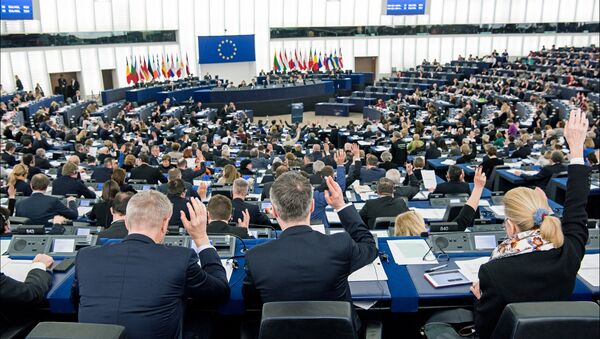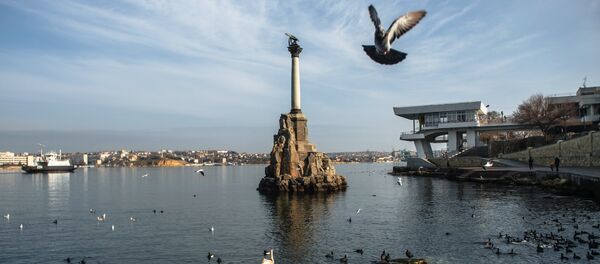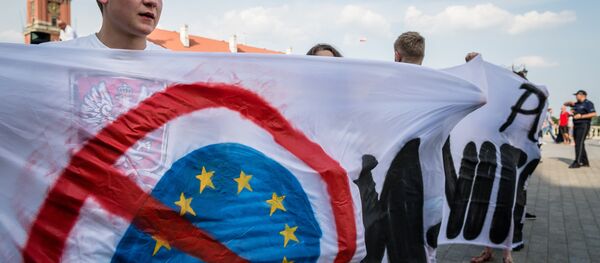On March 20 2014 Russia's parliamentarians ratified the agreement between the Supreme Council of Crimea and the Russian government for the peninsula to rejoin the Russian Federation.
This followed a referendum in which over 96 percent of Crimea residents voted to secede from Ukraine and reunify with Russia, in the aftermath of the Maidan coup in Kiev which overthrew the unpopular but democratically elected government of Viktor Yanukovych.
The President was illegally overthrown despite already having promised to implement many of the opposition's demands, including constitutional reforms and new presidential elections by the end of that year.
On Thursday EU parliamentary sources told US state news agency Radio Free Europe that lawmakers decided to reestablish links with the Russian parliament because the European Parliament has been "excluded from relations with Russia while the governments of several EU member states and the European Commission have had several meetings with members of the Russian government."
The EU has also reportedly decided to invite Russian lawmakers to participate in its conference on the upcoming Russian legislative elections, to be hosted in Brussels at an unconfirmed date.
However, this first step does not extend to the EU lifting its sanctions against some individual Russian lawmakers, such as parliamentary speakers Valentina Matvienko and Sergei Naryshkin.
In response to these sanctions, in 2015 the Russian Foreign Ministry drew up a reciprocal blacklist of EU politicians and parliamentarians, and NATO representatives, who would likewise be denied entry to Russia because of their promotion of sanctions politics.




